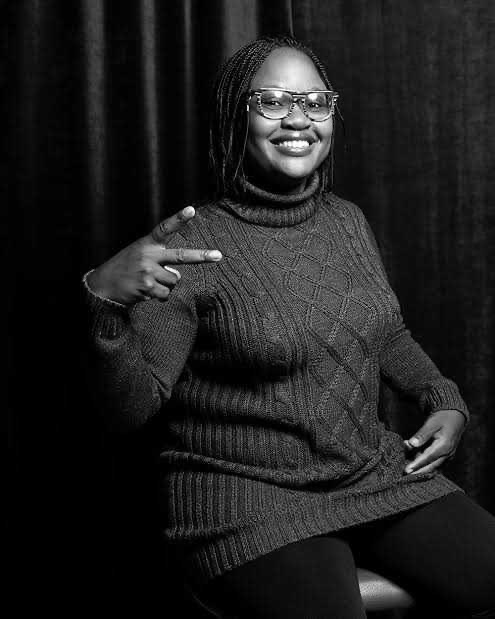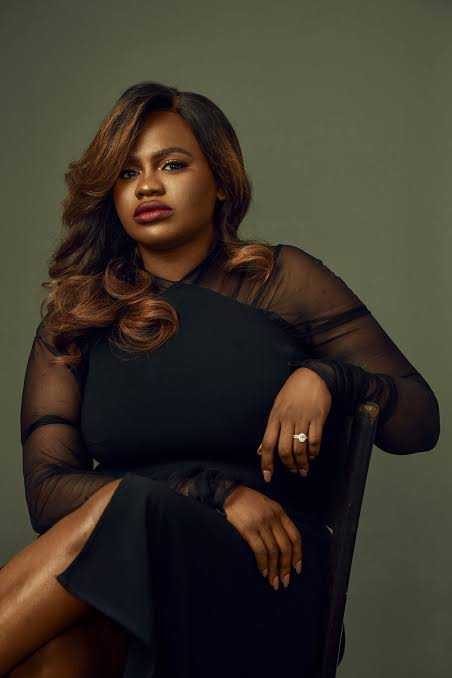From Isoken, Fifty, Finding Hubby, Lionheart, and King of Boys, Nollywood is learning to confine and confront masculine stereotypes…
By Seyi Lasisi
Patriarchy has an official mantra: the subjugation of women into footnotes. The misogynist considers women as an aside, a dormant prologue. This culture of subduing women, which is generationally hand-down, believes that women when they are allowed to speak, should do so in hushed tones. There exists an inexhaustible list of Nollywood films that subtly justifies the misogynist creed. In these films, female voices are expected to be lower, and calmer with no demands, compared to their male colleagues. Nollywood films, by being a conduit of societal convention, have in different ways taken this dogma to heart. Despite their noble intentions, these films could qualify as foot soldiers of patriarchy. From sexist tropes to stereotypical portrayal of women in Nollywood, misogynist ideas constantly gain screen presence in Nollywood films (La Femme Anjola, Tanwa Savage, and Ayinla.) Women are constantly burdened with the weight of patriarchy. This burden of patriarchy demands one thing amongst others from its captives: know your place. However, Nollywood female filmmakers aren’t taking this background position anymore.

These features and series: Amaka Igwe’s Rattle Snake, Kemi Adetiba-directed The Wedding Party and King of Boys, Funke Akindele’s Battle on Buka Street, and Omo Ghetto: The Saga, Oge Obasi-produced Mami Wata and Jade Osiberu-directed Gangs of Lagos, though of different genres, all have a unifying trait. The films show the top-tier position of female filmmakers in Nollywood. One of the similarities the mentioned films and series have is the gender affinity of their directors. The films are written, directed, and produced by Nigerian female filmmakers who won’t be coerced into fitting into the masculine narrative. In their distinctive arrival time (from Igwe’s Rattle Snake in 1995, to Gangs of Lagos in 2023) these films and series are couriers of good tidings for the Nigerian film industry. Female filmmakers are the custodians of this progressive omen.
I am twenty-three. This means that I am officially a member of the generation that knew little about Amaka Igwe when she was alive. Although I faithfully watched Fuji House of Commotion, the spinoff of Checkmate, and could remember a few defining moments from the TV series, the name Amaka Igwe held less importance to me then. History has distinguished Igwe as Nigeria’s first female filmmaker. Igwe’s pioneering effort was documented in the Tope Oshin-directed documentary, Amaka’s Kin: The Women of Nollywood. The documentary features an inventory of Nollywood female filmmakers: Mildred Okwo, Jade Osiberu, Michelle Bello, Stephanie Linus, Omoni Oboli, Pat Oghre Imobhio, Adeola Osunkojo, Dolapo Lowladee Adeleke, Belinda Yanga Agedah, and Ema Edosio. The documentary examines the behind-the-scenes career of these female filmmakers making strides in the male-dominated industry. Its 41-minute runtime chronicles their journey and pain, their joys, and the challenges and hurdles they had to overcome to become directors.
(Read also: Eight African Women Filmmakers Breaking the Bias)
As important as Amaka Igwe is to Nigerian female filmmakers, so also is the new generation of female filmmakers who are constantly raising the bar. Emem Isong together with Uduak Oguamanam, Anietie Isong, and Monalisa Chinda, co-founded the Royal Arts Academy in 2010. The Academy presented an opportunity for an educational space for aspiring actors and filmmakers. Barely will a conversation about Nollywood’s preference for crime action thrillers be held without the mention of Kemi Adetiba’s King of Boys. On the indie filmmakers’ spectrum, Oge Obasi leads the conservation. Mami Wata, directed by C.J ‘Fiery’ Obasi, became the first home-grown Nigerian film to be screened and won an award at Sundance Film Festival. With this monumental win by these Nigerian female filmmakers, the assertion that the industry is male-dominated seems sketchy. Female filmmakers seem to be the ones now dictating the movement of the industry.
Amaka Igwe is credited to have said, “I am an unapologetic commercial filmmaker. I make films for profit.” Igwe’s words seem to be the guiding mantra of Nollywood female filmmakers. A glance through the Nollywood box office returns gives credence to this assertion. Battle on Buka Street is currently topping the chart of Nollywood highest-grossing films with N668.4 million after a 17-week theatrical run. Prior to the Battle on Buka Street ascent, Omo Ghetto: The Saga clinched the top position with a box office return of N636,129,120. Before Akindele’s Omo Ghetto: The Saga, The Wedding Party tops the list with an N452,288,605 return.
(Read also: Battle on Buka Street Review: Nollywood Returns Home in Funke Akindele’s Polygamy Comedy)
Aside from dominating the box office list, Nollywood female filmmakers are constantly keeping Nollywood in the loop in the international film community. Mami Wata, Nigeria’s first indigenous film to premiere at Sundance, was produced by Oge Obasi. The praise Jade Osiberu is receiving for Gangs of Lagos aside, the film will forever be remembered as Prime Video’s debut African original. Mo Abudu, the media mogul heading EbonyLife Films, signed a three-project co-development deal with Sony Pictures Television that would include the co-production of The Dahomey Warriors, a series about the Amazons who took on French colonialists in a 19th-century West African kingdom. In 2020, Abudu signed another deal with Netflix. With the signing of this deal, Ebony Life became the first African production company to have a multi-title deal with the streamer.


As far back as 2013, Emem Isong, in an interview said, “Male producers in Nigeria like to portray women as weaklings, and I don’t think the African woman is a weakling. The African woman is strong and the African woman can hold her own in any way. And that’s what they don’t like.” Ten years after, the Nollywood portrayal of women as “weaklings” is gradually becoming numbed. The proliferation of women in this male-dominated industry as writers, directors, producers, cinematographers, editors, and costume designers has somewhat lessened this one-sided masculine portrayal of women. From Isoken, Fifty, Finding Hubby, Lionheart, and King of Boys, Nollywood is learning to confine and confront masculine stereotypes.
(Read also: Nollywood’s Sexist Trope and the Stereotypical Portrayal of Women in Contemporary Nigerian Movies)
Lionheart is the first Nigerian film acquired by Netflix. The film also earned Genevieve Nnaji her first directorial badge. By placing Adaeze, the daughter of an ailing transport mogul (Pete Edochie), whose business is on the verge of collapsing, into the orbit of a male-dominated transport business, the film explored the deep-rooted misogyny prevalent in the transport trade. Kemi Adetiba’s King of Boys is the forerunner of Brotherhood, Shanty Town, The Trade, and Gangs of Lagos. The Sola Sobowale-led Kings of Boys crime thriller defined a new pathway for Nollywood filmmakers. The Wedding Party also led to the newly-found urge for rom-com in Nollywood. Jade Osiberu’s directorial debut, Isoken, is another milestone for Nollywood female filmmakers. In this rom-com, the eponymous character (Dakore Egbuson-Akande) is an independent and opinionated woman dancing to the tune of her own tune. The lead character of Isoken, like other female characters from Fifty, Finding Hubby, and Flawsome, is the architect of her own life. Although the enablers of patriarchal ideologies are present in the lives of these women, the women are resolute in their decision. They build order around their lives.
These Nollywood female filmmakers have built their studios, created series, and directed and produced films that Nollywood will constantly remember. These female filmmakers have created and are still creating a formidable catalogue of works that constantly place Nollywood in the spotlight. And as Jade Osiberu said in a recent interview with The Hollywood Reporter following the success of Gangs of Lagos, “There’s just something about Nigerian women. I’m not sure what it is. We’re just dynamite when it comes to business, the film business included.”

Amaka Igwe created a pathway replete with applause not just for Nigerian female filmmakers but for Nigerian cinema. And Nollywood female filmmakers have learnt to tread this success-filled path with ease. Kemi ‘Lala’ Akindoju, who is an actress and producer, leads the four-member team of Prime Video Head of Nigerian Local originals. Writer-director, Jade Osiberu, had hinted at the production of a few unnamed titles for this year. Osiberu’s Brotherhood, The Trade, and Gangs of Lagos currently top the list of top 10 films on Prime Video. Mami Wata keeps attracting laurels and positive reviews internationally. Esther Kemi Gbadamosi took Nigerian animated films to the Berlinale, creating the possibility for the proliferation of animated films in Nollywood. All these industry-defining achievements point to how translucent the future of Nollywood female filmmakers is. It suffices to say that Nollywood female filmmakers are the new “king of boys.”
Seyi Lasisi is a Nigerian student with an obsessive interest in Nigerian and African films as an art form. His film criticism aspires to engage the subtle and obvious politics, sentiments, and opinions of the filmmaker to see how it aligns with reality. He tweets @SeyiVortex. Email: seyi.lasisi@afrocritik.com.



